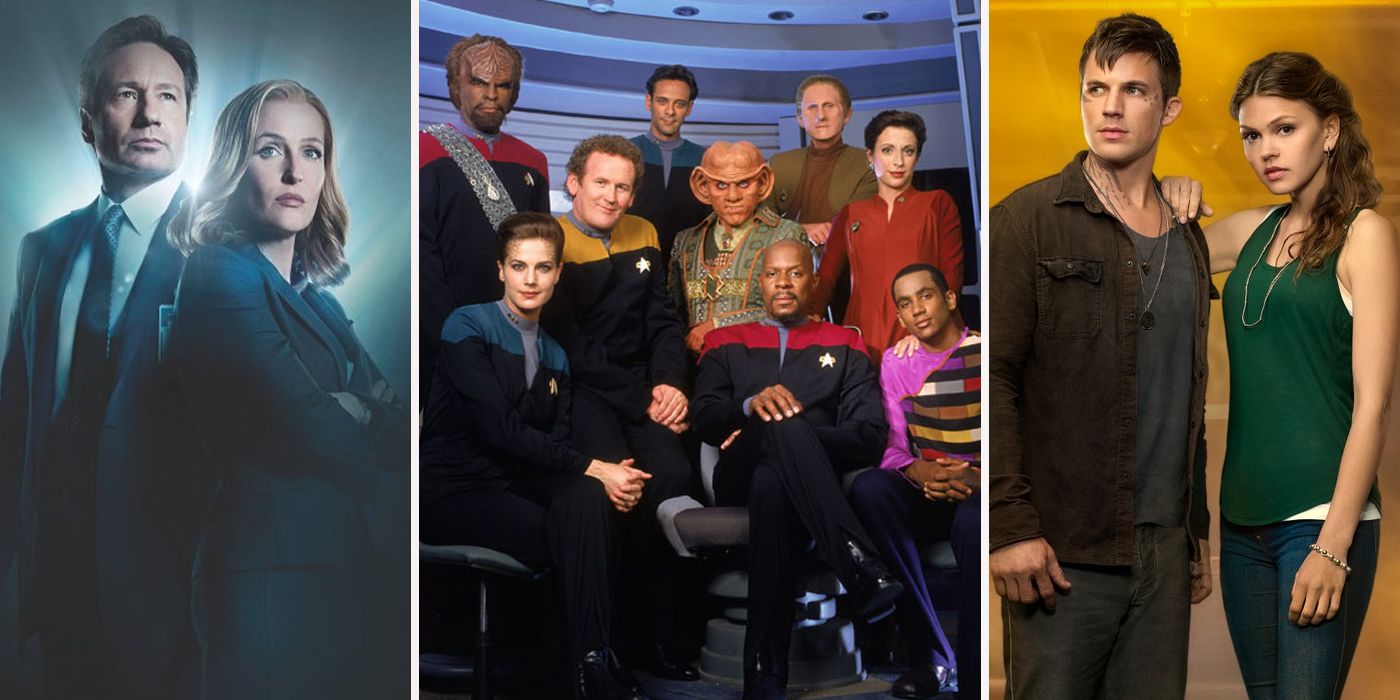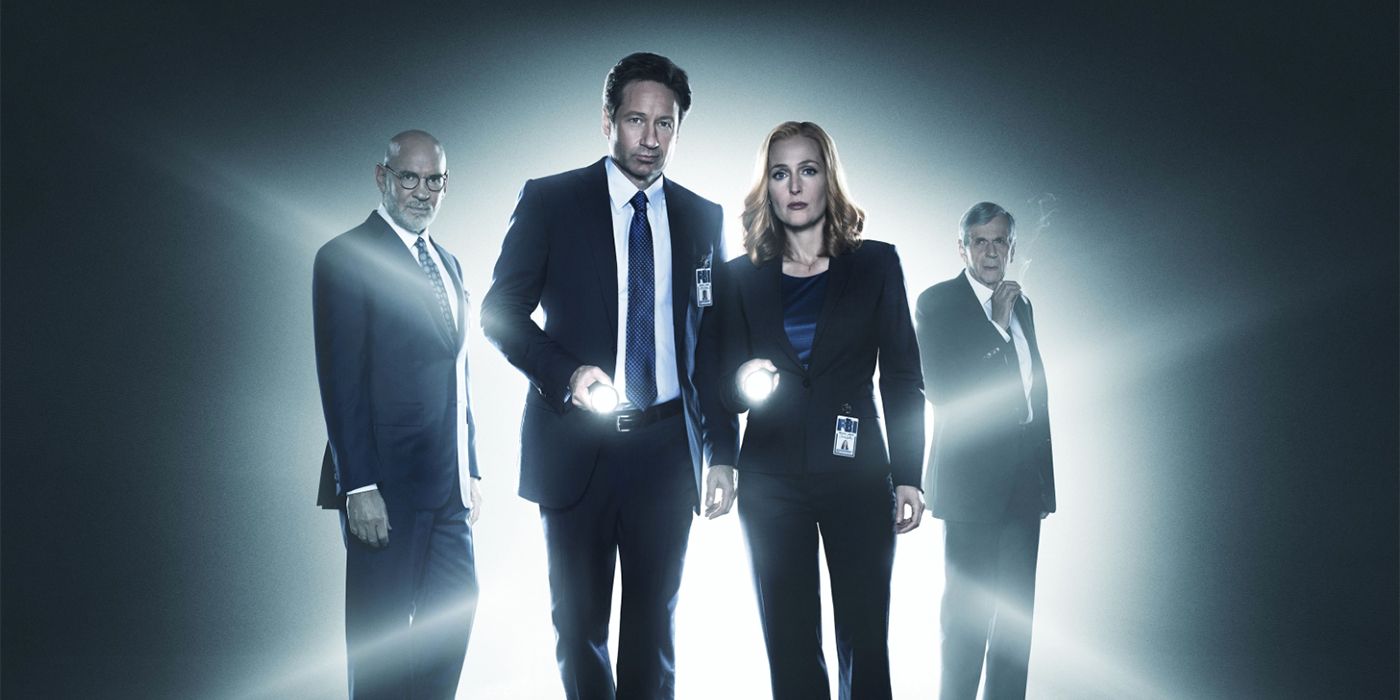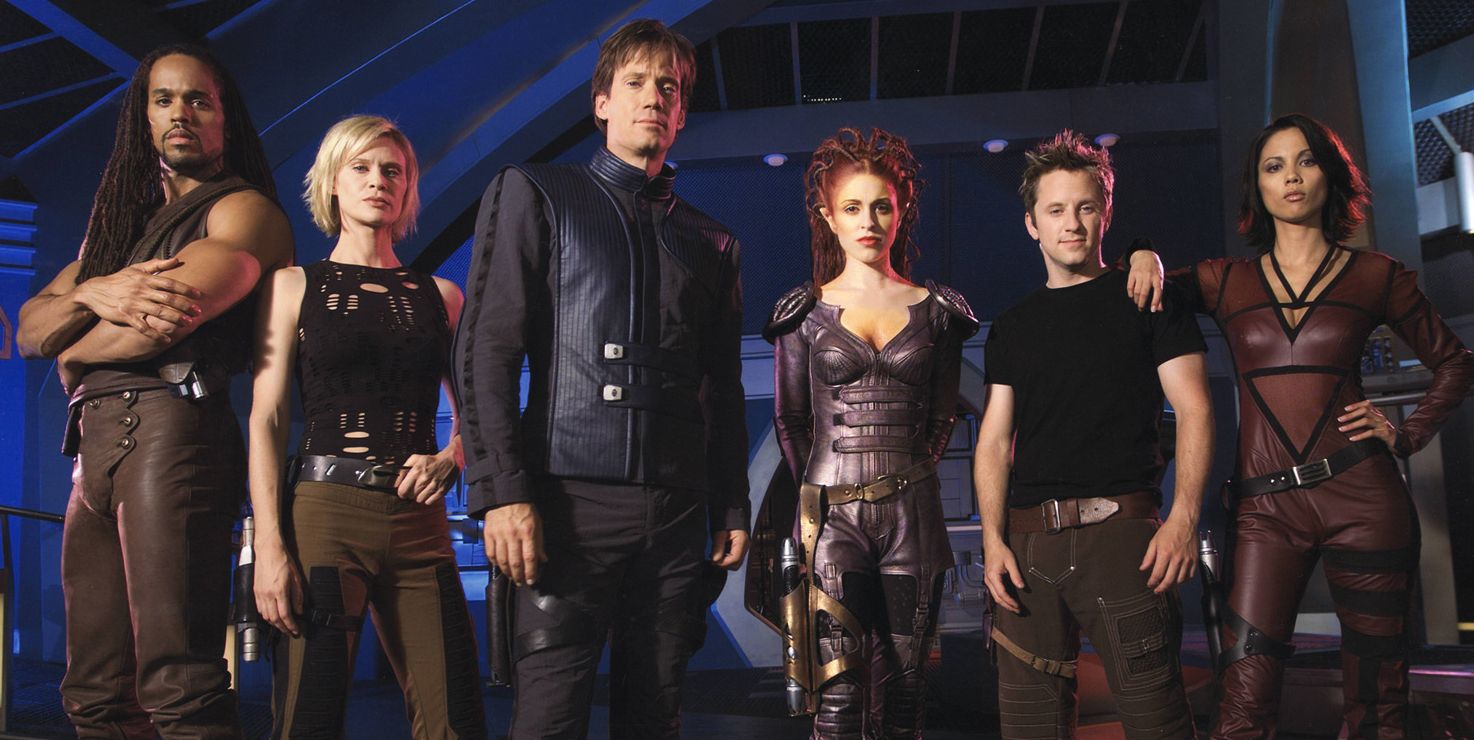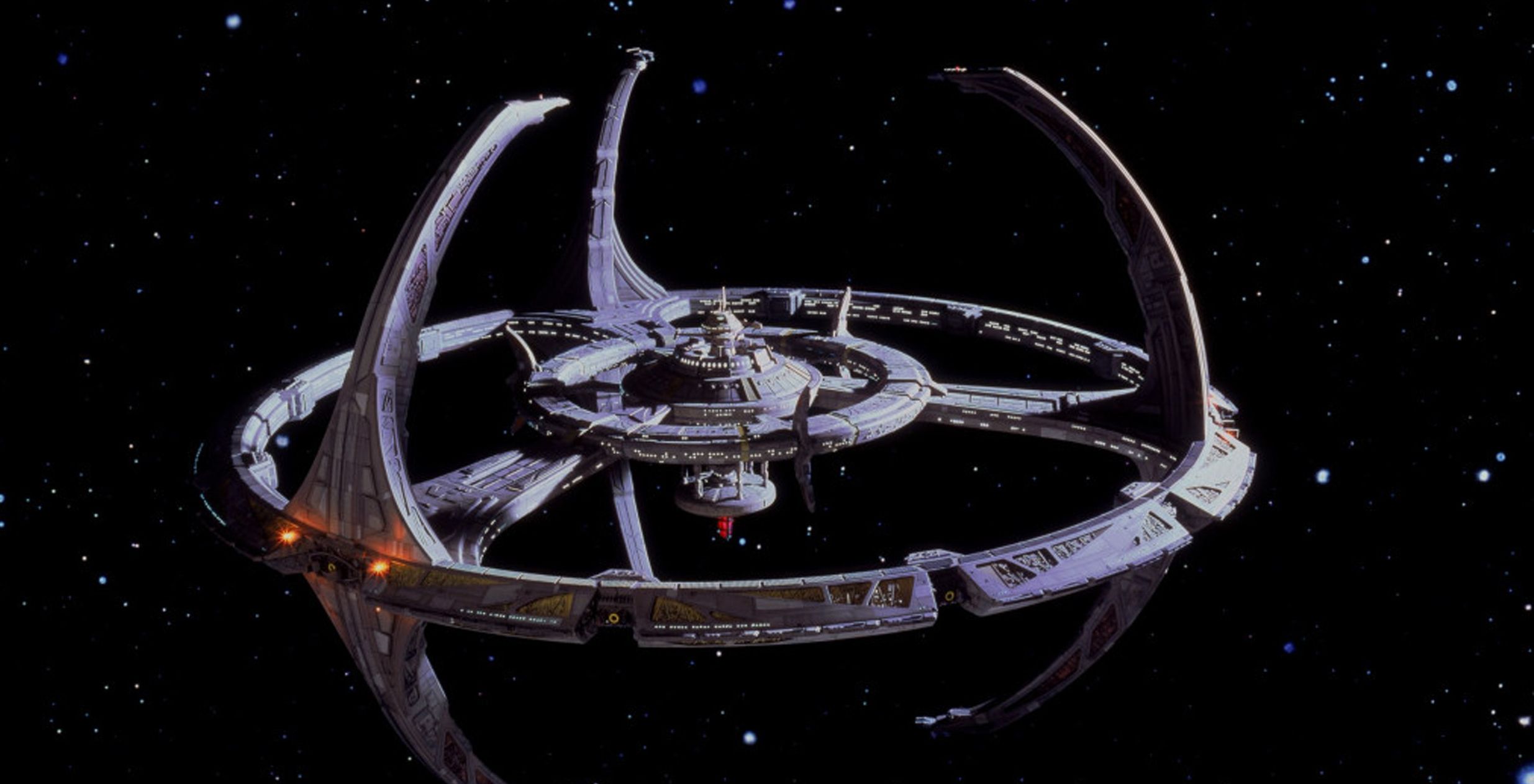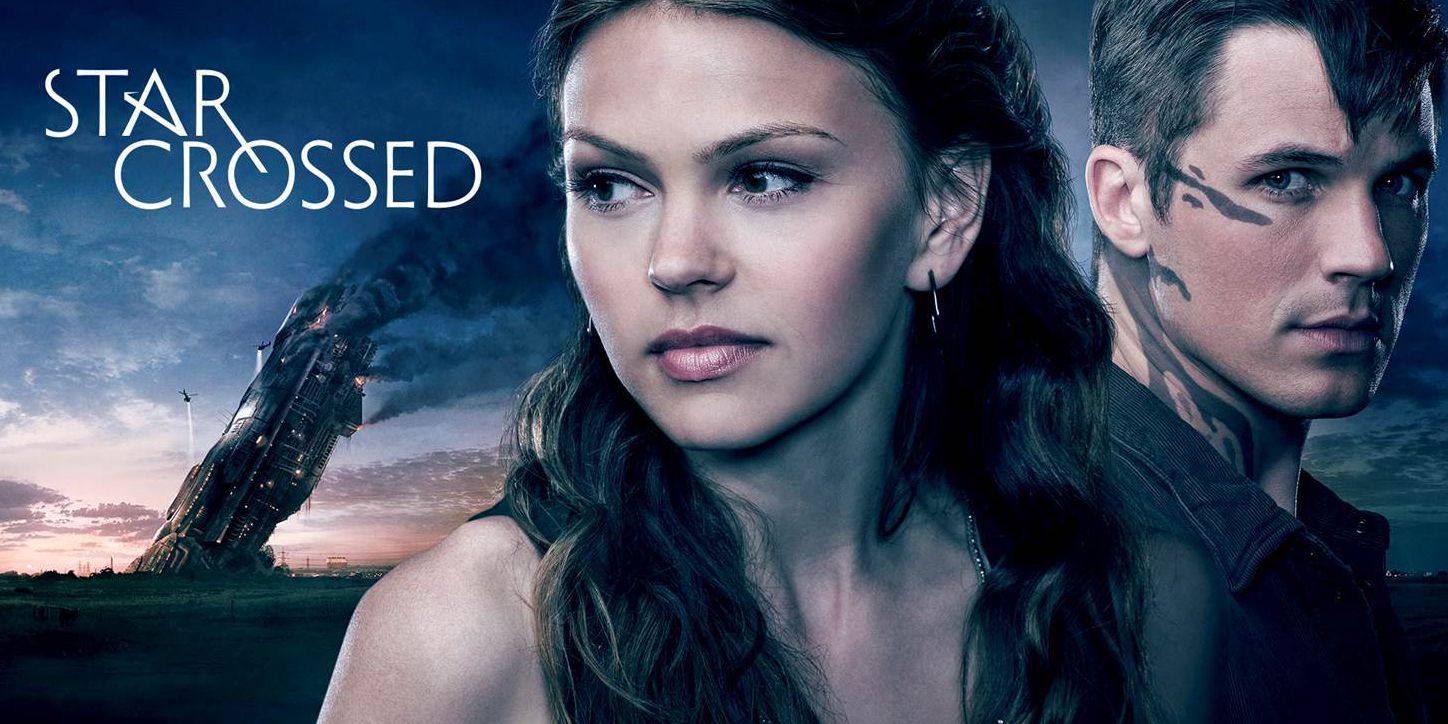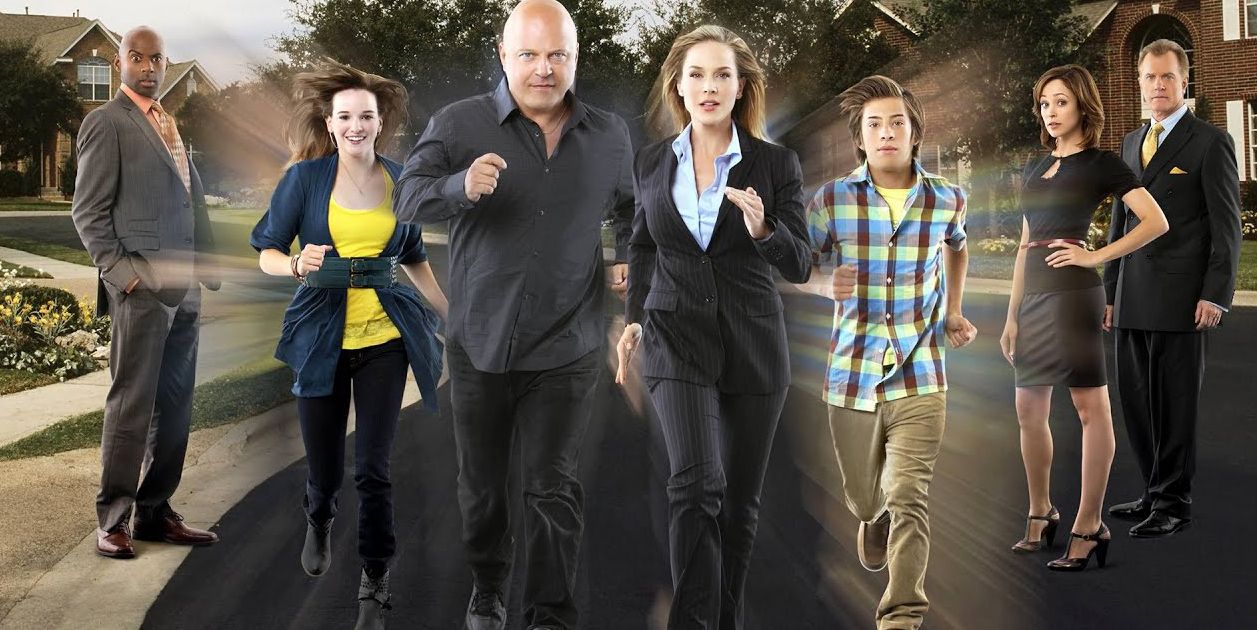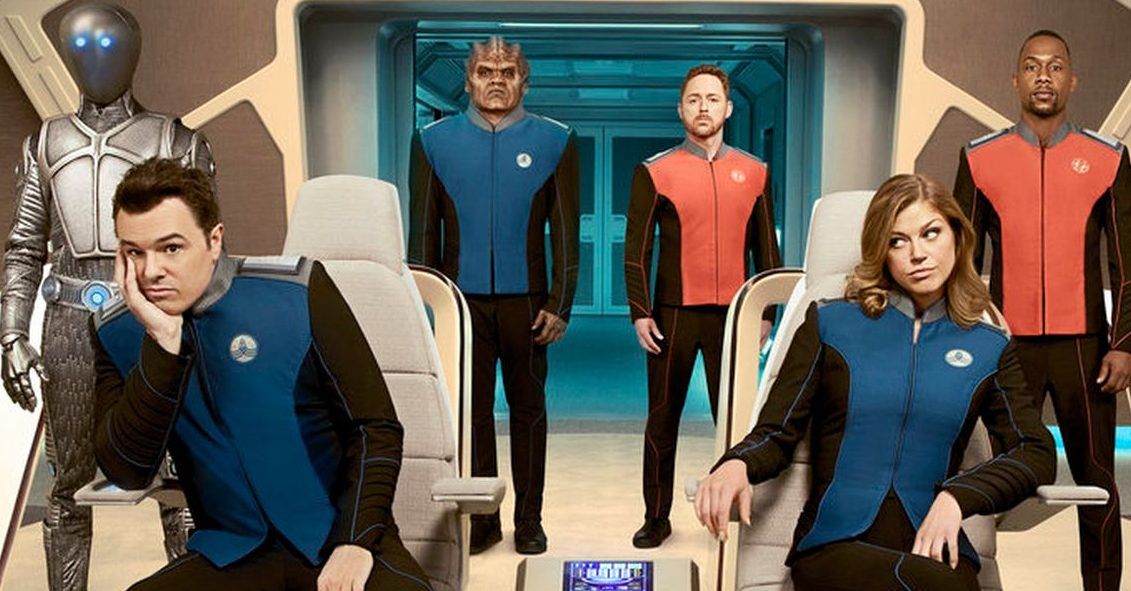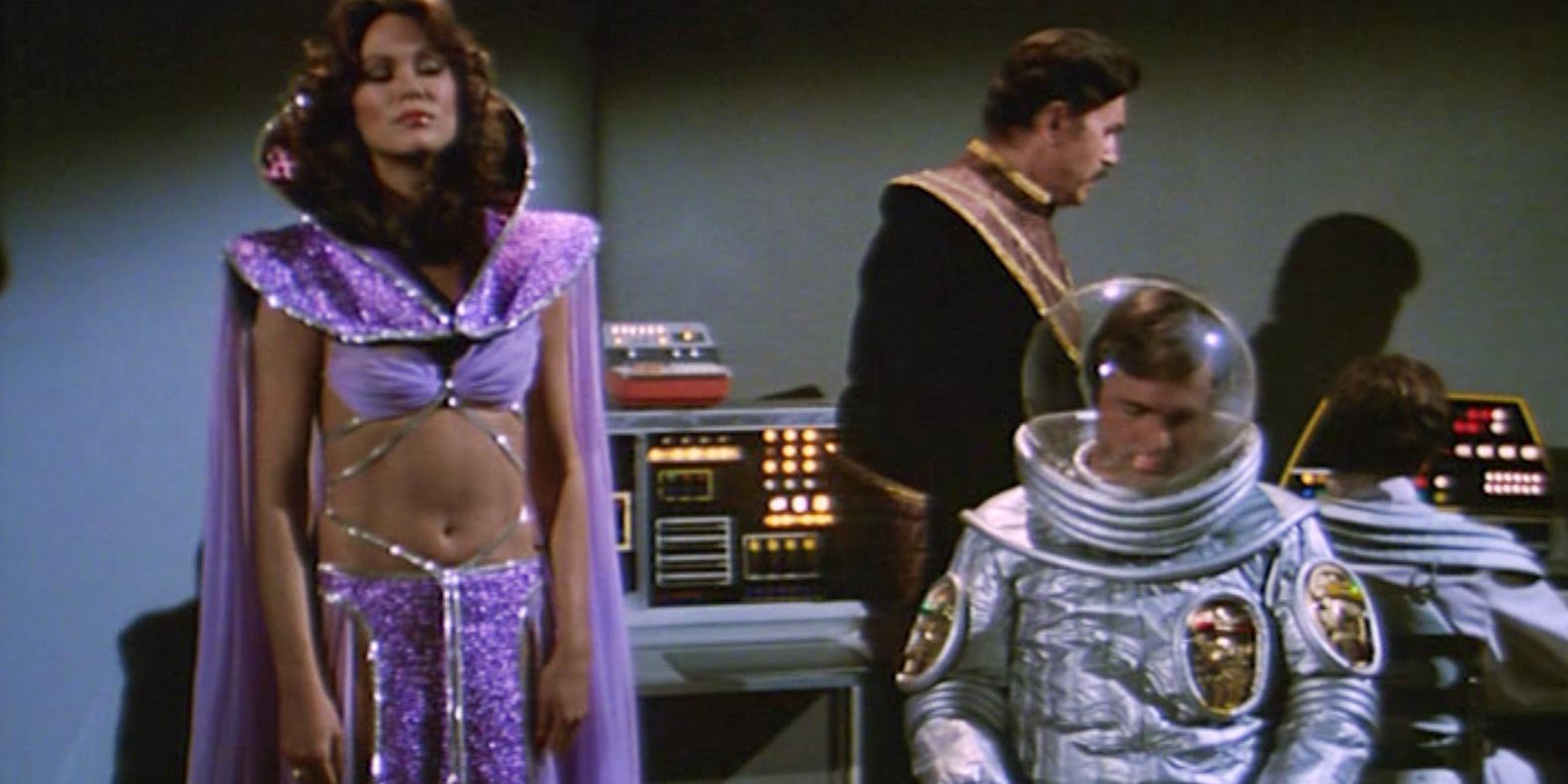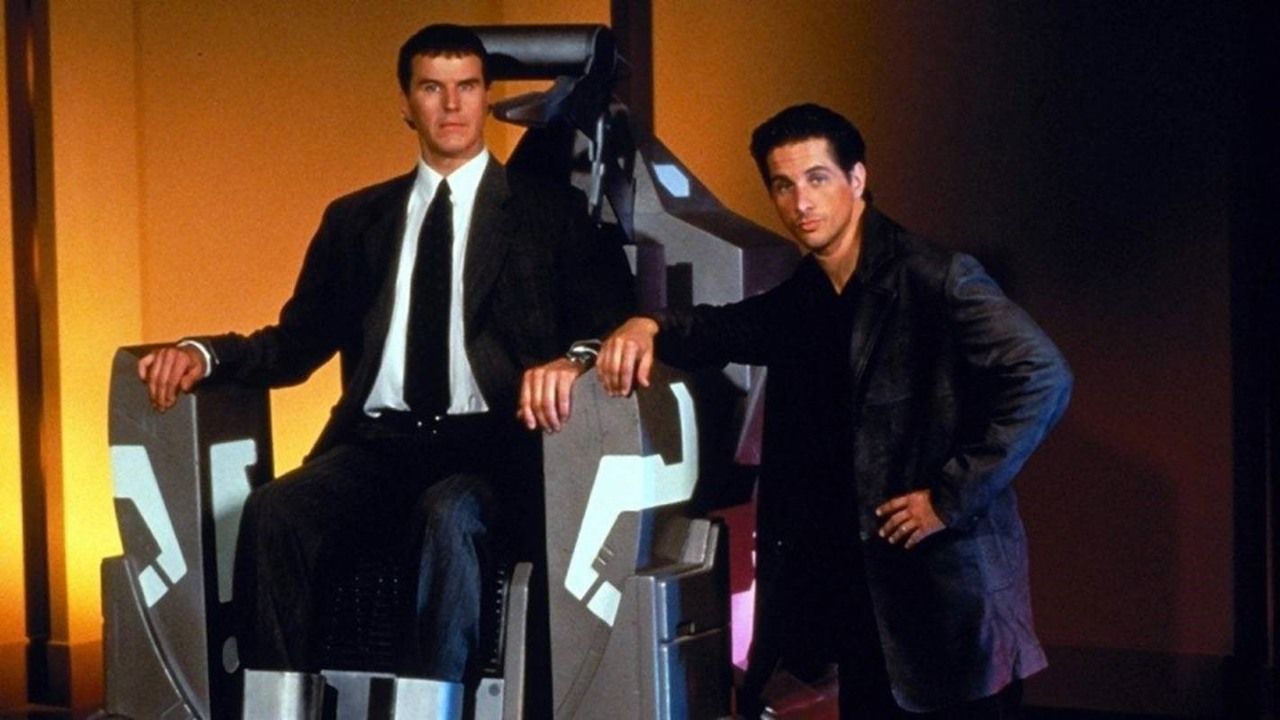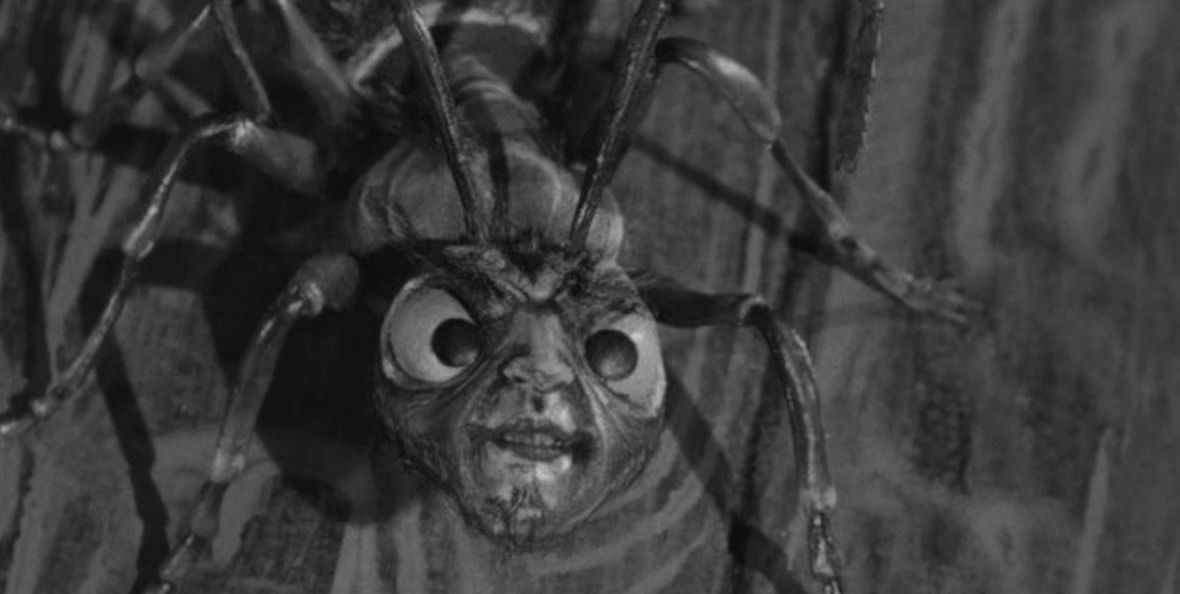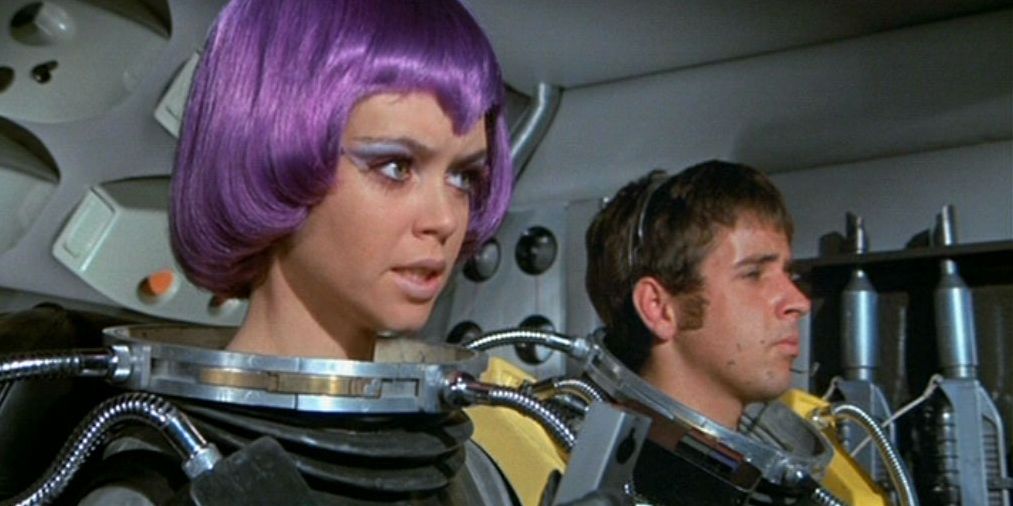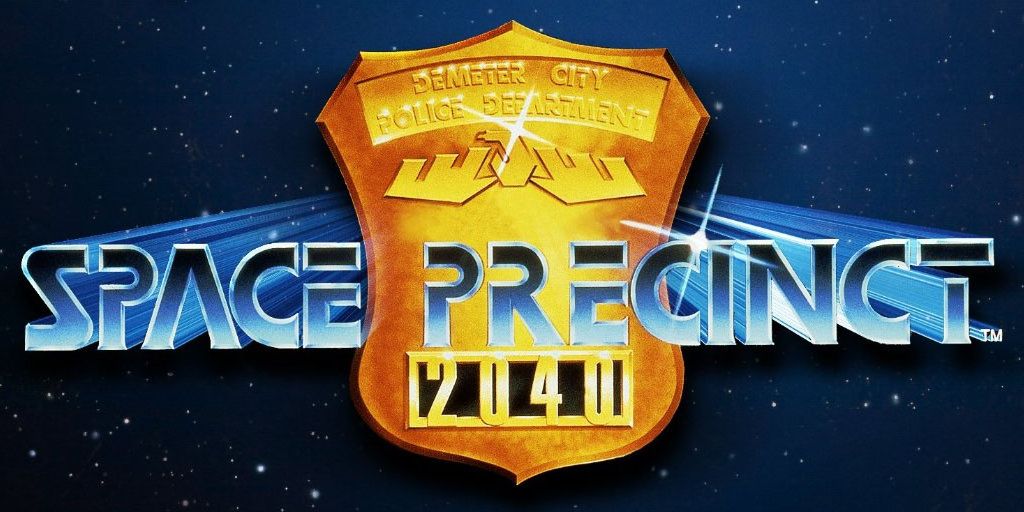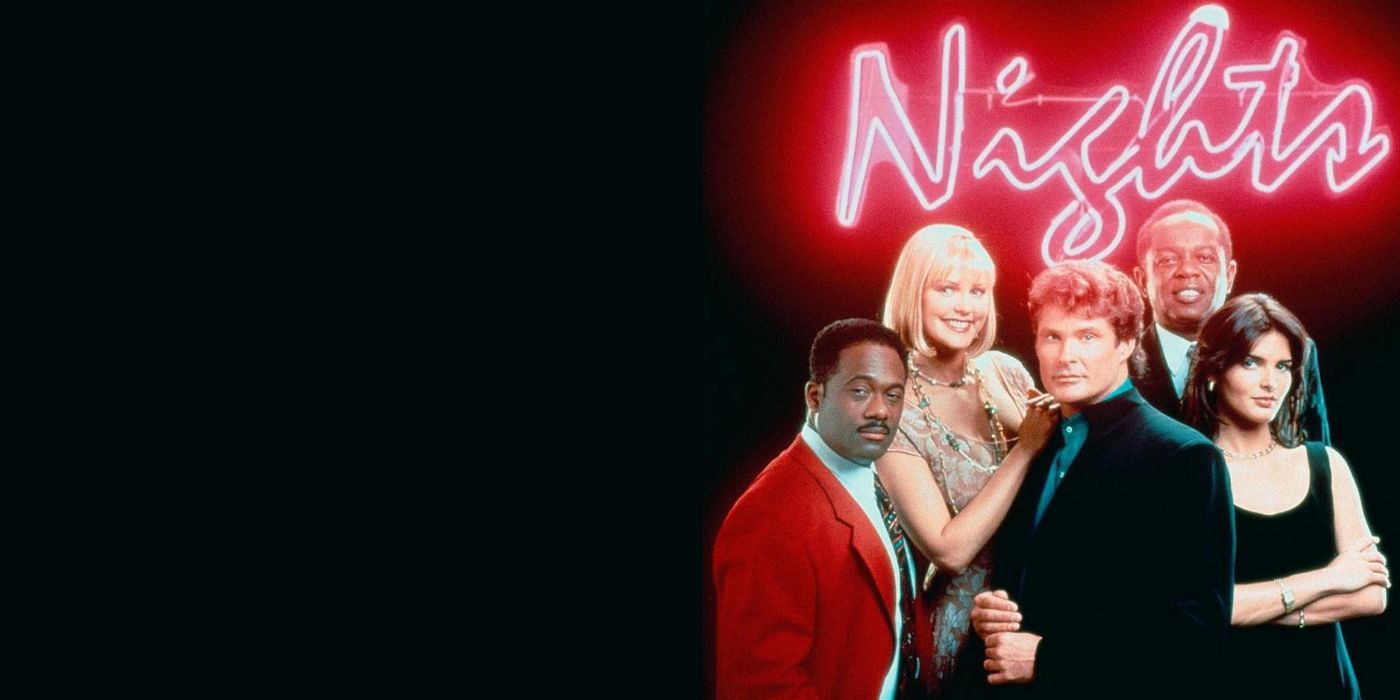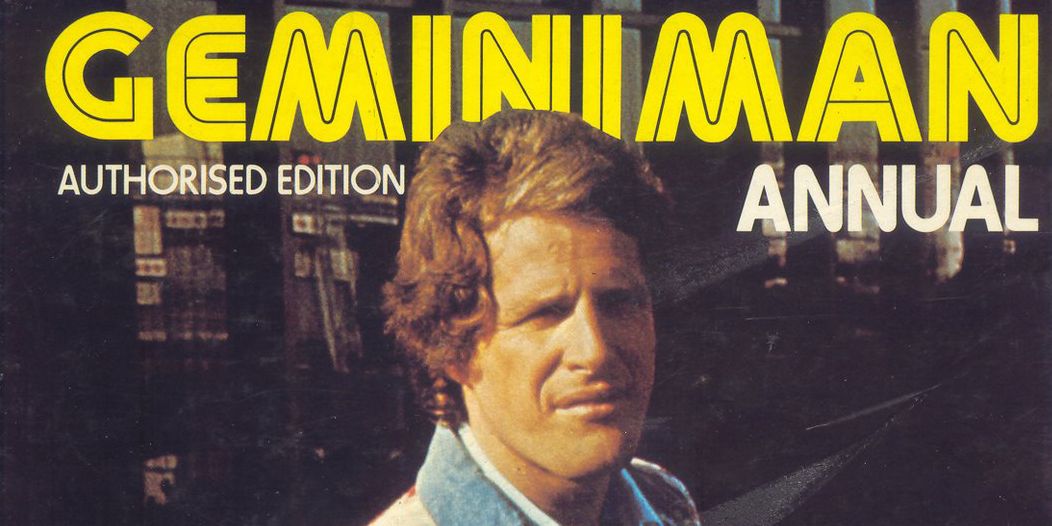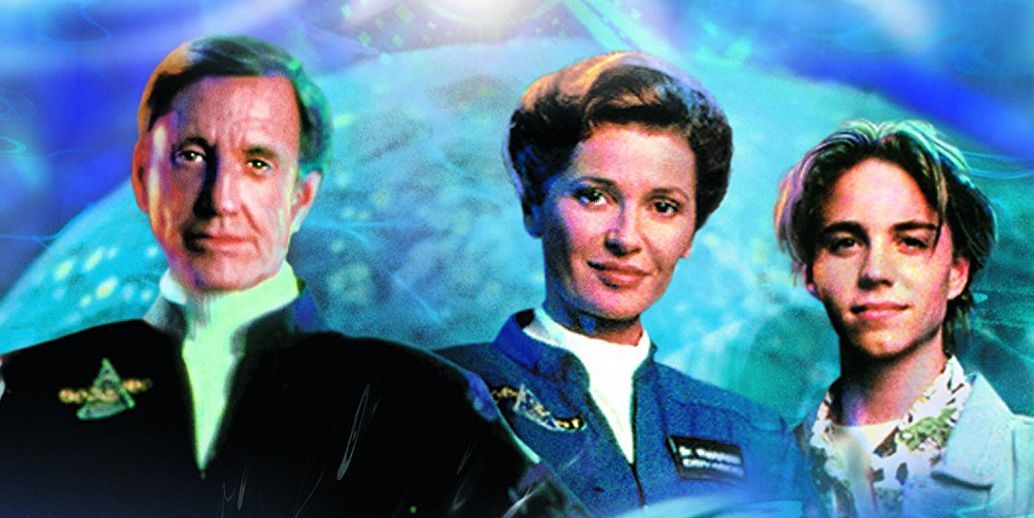Sci-fi fans will fight about anything, big or small. When they do, their flamewars have been known to create rifts on the level of the Capulets vs the Montagues. This is because they're extremely dedicated to and passionate about their favorite series, and as a result will die on the hill named “My Series Is Better Than Yours.” Nothing provokes bigger, more cataclysmic flamewars than two sci-fi shows coming out with similar premises.
Despite being a genre ostensibly priding itself on exploring new thing and the implications of future technology, sci-fi shows often seems bankrupt of actual new ideas when it comes to pitching various series.
As a result, producers go back to old series in order to get new ideas for characters, plots, and themes. Sometimes, they rob the entire premise from older series, and hope nobody notices.
However, despite their high hopes, many fans still notice these stolen ideas. Sometimes, the series that stole ideas from another go on to become incredibly popular, but in the end, they're still merely ripoffs.
With that said, here are the 15 Sci-Fi Shows That Shamelessly Ripped Off Better Ones.
The X-Files Ripped Off Kolchak: The Night Stalker
Ripping off other things is pretty much a part of the circle of life: one show rips off another, then comes into its own, then another show rips off that one, in a wonderful ouroboros of network plagiarism.
Just as tons of “Let’s Investigate Some Weird Stuff” procedurals owe a debt to The X-Files’ influence, Mulder and Scully also owe a debt to a certain reporter named Kolchak.
Kolchak: The Night Stalker followed intrepid newspaper writer Carl Kolchak as he investigated mysterious crimes around Chicago. The cases were so weird that law enforcement refused to follow up on them, so it was up to Kolchak to figure out the supernatural nature of the threat.
The creators of The X-Files freely admitted that they were inspired by the series, so much so that they cast Kolchak’s actor, Darren McGavin, on the show as an old FBI agent who encountered one of the first X-File cases.
Andromeda ripped off Blake’s 7
Science fiction series have gotten a lot of mileage out of stories that consist of a small band of rebels on a ship fighting against a totalitarian enemy.
Star Wars made the formula a hit, but Blake’s 7 introduced moral ambiguity to the premise. These were not a plucky band of good-hearted rebels fighting for truth and justice. Also, the only thing that gave them a chance was stumbling onto a one-of-a-kind ship with origins that were alien and mysterious.
Andromeda borrowed the premise and added Kevin Sorbo-- a rebel hero attempting to restore a just government with his rag-tag bunch of space friends. Their only hope was the fantastically advanced starship Andromeda Ascendant.
Andromeda was based on a concept by Gene Roddenberry, the creator of Star Trek, whose ideas were cannibalized for new shows years after he died.
Star Trek: Deep Space Nine and Babylon 5
Both Star Trek: Deep Space Nine and Babylon 5 are undeniably great, but one is a ripoff.
Babylon 5’s creator J. Michael Straczynski pitched the series to Paramount in the early '90s, envisaging a show about a space station that acted as a trade outpost and hotspot for diplomatic disputes, which eventually became embroiled in a galactic war against a mysterious enemy. Paramount told him thanks, but no thanks.
The same year that Babylon 5’s pilot movie aired, Paramount debuted Star Trek: Deep Space Nine, which centered around a Federation space station that becomes a nexus for trade and diplomacy.
It even gets embroiled in an unprecedented galactic war in later seasons. Both shows ended up finding unique voices, and to Straczynski's credit, he’s never held any grudge against Paramount.
Star-Crossed ripped off Alien Nation
The creators of Star-Crossed borrowed a page from the CW’s playbook when they essentially made Alien Nation, but younger and more appealing. It’s the CW’s version of “Let’s remake an old series... but in space.”
Both series feature aliens coming to Earth, but instead of invading or conquering, they attempt to assimilate into human society and culture, with a sinister conspiracy that they attempt to hide.
Alien Nation used this setting for a buddy cop show, but Star-Crossed used it for a high school drama, which followed a high school student named Emery who had to attend school with aliens who had landed on Earth.
Alien Nation was eventually canceled due to financial difficulties that were suffered by the fledgling Fox network, but it was later resurrected as a series of successful TV movies.
No Ordinary Family ripped off Fantastic Four
No Ordinary Family and Fantastic Four have a weirdly tangential connection in the form of Michael Chiklis. Though not involved in the Fantastic Four animated series, Chiklis did play the tragically stone-plated superhero Ben Grimm in the first series of live-action Fantastic Four movies.
As a life-long fan of the character, perhaps this is why he jumped at the chance to star in No Ordinary Family, which took the familiar dysfunctional family dynamic of Fantastic Four and rejiggered the titular foursome’s powers.
There was a super-genius in the form of their son JJ, Michael Chiklis once again played The Strong One, while the mother, Stephanie, was a researcher at a scientific conglomerate, much like the Fantastic Four’s Reed Richards.
The Orville ripped off Star Trek
You’re probably thinking to yourself, “of course The Orville has similarities to Star Trek, it’s a parody of it.” While this is a valid point, there’s a fine line between “parody” and “lifting material wholesale.” Seth McFarlane’s The Orville definitely lifts plots from specific Star Trek episodes.
Orville’s “If The Stars Should Appear” is essentially the same plot as “For The World Is Hollow, And I Have Touched The Sky” from the original Star Trek series, with both of episodes featuring the crew trying to save an ancient derelict generation ship from crashing and annihilating itself.
Along the same lines,“Majority Rule” rips off several Star Trek episodes that dealt with planets that based their cultures on specific Earth time periods or cultural trends.
Additionally, the episodes are so devoid of comedy that you get the sense that Seth McFarlane really just wanted to remake Star Trek, but with himself as the captain.
Fringe ripped off The X-Files
This one’s so close it probably raised the hairs of Fox’s entire legal department. Both Fringe and The X-Files feature FBI agents from a special division of the Bureau tackling cases that are too weird for normal law enforcement.
In the first season of Fringe, there was even a running conspiracy arc about how all of the strange scientific anomalies were connected to one group-- much like The X-Files’ running plotline about the conspiracy to hide evidence of aliens from the populace.
Like any good rip-off, though, Fringe eventually shed the skin of its predecessor and found its own voice as a show. They still dealt with scientific and paranormal oddities on a weekly basis, but overall Fringe developed its own dense mythology around a parallel universe and its war with our own reality.
Buck Rogers ripped off Battlestar Galactica
Hollywood is terrible at many things, but one thing that it excels at is copying a successful thing while understanding nothing about what made that thing good in the first place. So when Star Wars came out, filmmakers scrambled to capitalize on some of those sweet, sweet space bucks by launching ripoff after ripoff.
Battlestar Galactica (1978) isn’t quite a ripoff of it, though its creators were sued under the charge that it was. However, when Buck Rogers in the 25th Century premiered just a year after Battlestar, it was a little hard not to notice the similarities, especially since they were both produced by Glen Larson.
That’s right, Buck Rogers’ creator ripped off his own series. Costumes, props, and vehicles from Battlestar made it into Buck Rogers, and the space fighters were copied from Ralph McQuarrie’s original concept art for Battlestar’s fighters.
Total Recall 2070 ripped off Blade Runner
In the world of Total Recall 2070, there are self-aware androids who have the ability to kill. Main character David Hume has lived through the trauma of having his partner killed by self-aware androids, which were made by a shadowy corporation with a monopoly on cranking out artificial humans.
David has now been partnered with a fellow officer of the Citizens Protection Bureau... who is secretly an android himself.
Total Recall 2070 at least has an excuse for being suspiciously similar to the world, tone, and plot of Blade Runner-- it was based on a movie by the same author who supplied Blade Runner’s source material: Philip K. Dick.
It did, however, dump Total Recall’s plot and themes like spoiled leftovers over Blade Runner’s questions of the humanity of sentient androids (or rather, vampires).
The Outer Limits ripped off The Twilight Zone
This one’s a classic rivalry, like Star Wars vs. Star Trek or Sega vs. Nintendo. When fans think classic sci-fi/horror anthology series, they often immediately think of The Twilight Zone. The show gave rise to no less than two sequel series, a theme park ride, and an unforgettable and annoying theme song.
The Outer Limits came four years after. It had a greater focus on science fiction, and it is remembered for allowing author Harlan Ellison to sue James Cameron for plagiarism over The Terminator.
It’s also remembered for being generally meaner to its characters than The Twilight Zone. While both shows often had shocking twists at the end of their stories, The Outer Limits' twists were often out of nowhere and seemed to exist just to torture the protagonist.
While The Twilight Zone often got dark, when it punished its characters, it was usually for a good reason.
UFO ripped off Captain Scarlet and the Mysterons
Gerry and Sylvia Anderson seemed to both be fixated with aliens trying to invade Earth, especially in disguise. Their classic series, Captain Scarlet and the Mysterons, used more realistically-proportioned versions of the same puppets used in their earlier Super-Marionation shows.
Fittingly, the show’s themes and tone were darker and more morally ambiguous than their previous efforts, with the titular Captain Scarlet acting as an agent of an international organization tasked with fending off alien invaders in the guise of humans and protecting a blissfully unaware public.
When the Andersons decided to branch out into a live-action series, they apparently recycled Captain Scarlet’s premise, creating another show about an international organization repelling alien invaders outside of public knowledge.
UFO was a cult classic, but Captain Scarlet and the Mysterons remains the favorite for most fans.
Space Precinct ripped off Star Cops
Space Precinct and Star Cops were essentially Hill Street Blues or NYPD Blue in space. Both were about the difficulties of maintaining law and order as humanity colonized the solar system. However, one featured Idris Elba delivering space pizza and the other was a thoughtful examination of near-future science.
Star Cops was a genuinely innovative attempt at near-future realistic science fiction.
Space Precinct was more out there. It was set in deep space and featured an NYPD detective who was somehow drafted into serving in a far-off colony. Even though it was made seven years after Star Cops, its effects aren’t any more convincing.
Star Cops even sounds like it could be an American knock-off of a better British series. Alas, Gerry Anderson’s Space Precinct is the knock-off that found synonyms of the better series’ title.
Baywatch Nights ripped off The X-Files
Baywatch Nights started off as a spinoff of Baywatch where David Hasselhoff’s character joined a detective agency opened by the resident police officer of Baywatch, Garner Ellerbee. It operated out of a nightclub-- because someone involved in the series still thought it was the '80s.
Things got even weird in its second season. When faced with free-falling ratings compared to the original Baywatch, the powers that be took a hard look at the series.
Somehow, given every other option for the show to boost ratings (reminder, Nights came from the show that made its name on cheesecake and scantily-clad women), they decided to copy The X-Files and become a paranormal investigation show in season 2. Spoiler alert: it didn’t help.
The Gemini Man ripped off The Invisible Man
Over the years, four different live action series have made it to air thanks to H.G. Wells’ classic novel. These four shows, which were all alike, also each bore the title The Invisible Man.
The series from 1975 is the most iconic-- it was produced by Harve Bennett, who would go on to save the Star Trek movies series and starred David McCallum of NCIS and The Man From U.N.C.L.E. fame.
Though it only lasted half a season, the 1975 series was so successful that it was later copied. The creators of The Gemini Man essentially robbed its still-warm corpse for ideas and premiered with an almost identical premise months after the last episode of The Invisible Man.
SeaQuest DSV ripped off Star Trek
Hundreds of TV series have come and gone that got their creative genesis from some executive saying, “Hey, what if we remade an old TV show, but this time in space?” Firefly was a western in space, Star Trek was Wagon Train in space, and Lost in Space was Swiss Family Robinson also in space.
SeaQuest DSV is one of the only shows that reversed this idea and decided to leave space out of its premise-- it was Star Trek underwater. Executively produced by Steven Spielberg and starring Roy Scheider as Captain Nathan Bridger, the show followed a group that was forced to deal with pirates, natural disasters, and marine life, all while reporting to the very Federation-like United Earth Oceans Organization.
The show would verge even farther into rip-off territory in its second and third seasons, as it incorporated plotlines that involved aliens and genetically engineered life in a desperate bid to get higher ratings.
---
Can you think of any other sci-fi shows that ripped off better ones? Sound off in the comment section!

